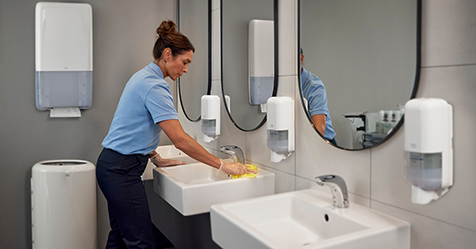New Research Shows Cleaning Chemicals May Affect Brain Cells
New research published in monthly scientific journal Nature Neuroscience on quaternary ammonium compounds (quats) has found the large classification of chemicals used in cleaning and disinfecting products along with other functions to be potentially toxic to a type of brain cell. Oligodendrocytes, which provide fatty insulation around nerves that allows signals to move throughout the brain faster, have been shown to be particularly affected by quats. According to scientists at Case Western Reserve University School of Medicine, the latest research suggests exposure to quats could trigger disease in certain populations that are already genetically susceptible, as reported in The Washington Post.
Another 2023 report on quats published by the American Chemical Society labeled the chemicals to be an area of emerging concern. Since the COVID-19 pandemic, quat use has grown, and studies conducted before and after the onset of the pandemic indicate increased human exposure to quats. For example, a 2021 report found that 80% of 43 participants had quats in their blood.
Quats have suspected and known adverse health concerns, including dermal and respiratory effects, developmental and reproductive toxicity, disruption of metabolic function such as lipid homeostasis, and impairment of mitochondrial function. Quats’ role in antimicrobial resistance also has been demonstrated, according to American Chemical Society research.
In turn, experts in The Washington Post article agree that more research is needed to study the effect of quats on the human body and overall environment, and researchers will be challenged because hundreds of quats are in the market to study.
“Human exposure to chemical ingredients is a very important issue in the cleaning industry as well as the ISSA research project funded by the U.S. Environmental Protection Agency on using Safer Choice labeled products,” said Dr. Gavin Macgregor-Skinner, senior director of the Global Biorisk Advisory Council ® (GBAC), a division of ISSA. “Any cleaning product can be used safely if workers are trained and have knowledge about cleaning ingredients and are provided with and wear personal protective equipment that decreases the risk of exposure to chemicals.”

